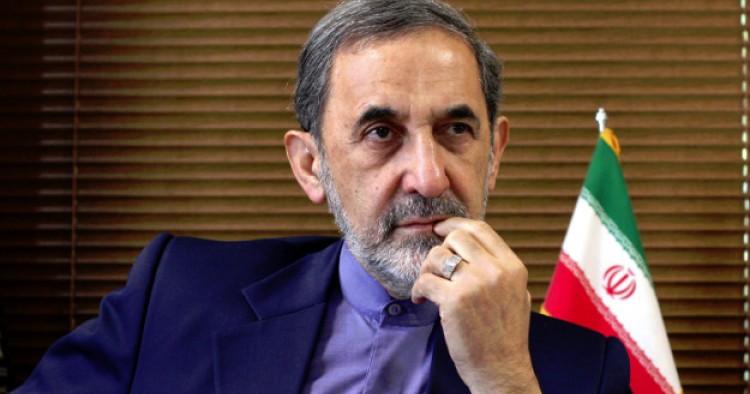A senior Iranian official has defended the Islamic Republic’s involvement in regional conflicts and questioned the presence and role of the United States in the Middle East. “Iran has fought against terrorist groups and organizations that threaten the entire world, and has rendered many martyrs on this path. Without Iran’s sacrifices, the region would have disintegrated,” Ali Akbar Velayati, an advisor to Supreme Leader Ali Khamenei on international affairs, said in an interview with London-based al-Araby al-Jadeed. “What is the justification for a country thousands of kilometers away to determine the destiny of the region. This will not yield results and will never impact Iran’s national security and interests," he said referring to U.S. military presence in the Persian Gulf. "All the lessons of the past prove that foreign parties only take measures that benefit them and weaken the region.” He stressed that Tehran is ready to hold dialogue with neighboring countries to defuse tension and resolve conflicts in the region.
Comment: Velayati’s remark comes at a time when Tehran’s relations with most Gulf states have reached a new low. In January, Kuwait’s foreign minister paid a rare visit to Tehran to deliver a message from the six-member Gulf Corporation Council (G.C.C.) that called for frank dialogue between Iran and the Gulf states. But Saudi Crown Prince Mohammed bin Salman recently shut the door on diplomacy with Tehran, arguing that the Islamic Republic is only increasing its expansionist role in the region. Iran's support for Houthi rebels in Yemen has particularly troubled Riyadh. In contrast to Velayati’s more diplomatic tone, Iran’s Defense Minister Hossein Dehghan said on Sunday that Iran would hit back and destroy all of Saudi Arabia, except the holy cities of Mecca and Medina, if Riyadh showed any aggression.
The Middle East Institute (MEI) is an independent, non-partisan, non-for-profit, educational organization. It does not engage in advocacy and its scholars’ opinions are their own. MEI welcomes financial donations, but retains sole editorial control over its work and its publications reflect only the authors’ views. For a listing of MEI donors, please click here.













